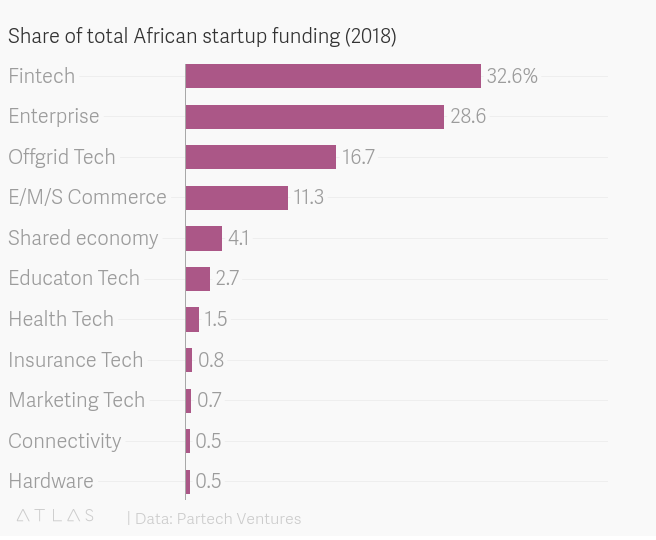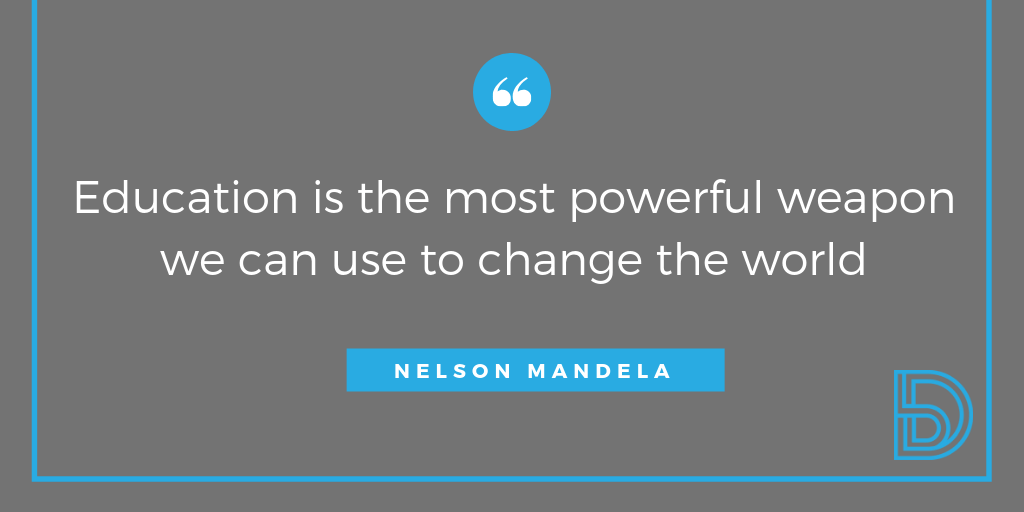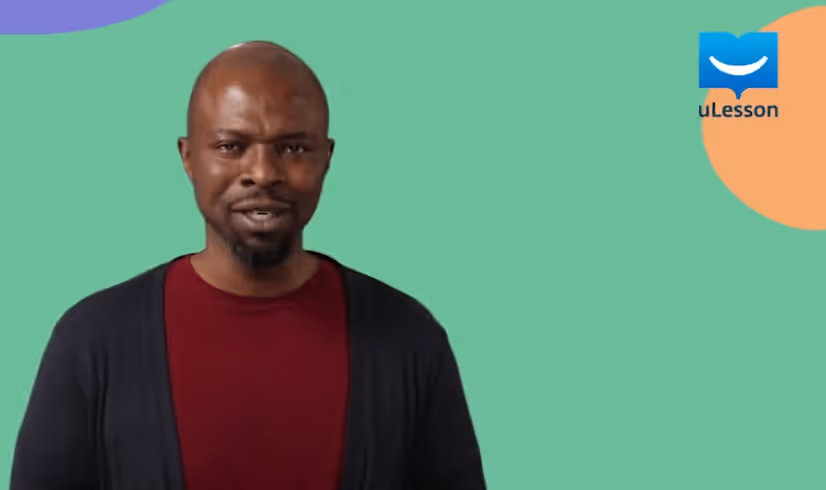Educational technology (Edtech) startups in Nigeria have not received as much buzz as fintech, e-commerce nor healthtech startups, despite the crucial role of education in a nation’s development.
In 2018, Edtech startups were only able to raise 2.7% of the total $1.16 billion (₦420 billion) raised by African startups. Their raise came from just three deals and amounted to $31.8 million (₦11.5 billion). This pales in comparison to the $379 million (₦137.5 billion) raised by fintech startups from 17 deals. One interpretation of this is that investors rarely cut edtech startups a cheque. Or there simply aren’t enough Edtech entrepreneurs?
Nevertheless, the founders of edtech startups have forged ahead by bootstrapping and taking advantage of grants and prizes from competitions (which are not captured in the number of deals reported above).


Consequently, there are high-flyers such as Tuteria—a recipient of numerous prizes and grants—and Krystal Digital—the parent company of MySkool Portal, which is valued at $3 million. On the other hand, there are what many might call casualties because they have now been shut down. For example, Prepup can be termed an edtech startup casualty, with no disrespect to the founders or stakeholders.


According to serial entrepreneur, Henry Mascot, edtech startups are fundamentally different from other type of startups like internet technology businesses (think: e-commerce and its ilk).
“Don’t expect a quick flip or quick growth. Building a large, successful education company will take 20 years. The growth curve will not be like an internet technology company until you hit millions in revenue.”, says Henry in a 2016 article about what he learnt building an edtech startup in Nigeria.
Take angel money from people who want to make a difference in education. Then take private equity money once you’ve figured out how to get to millions in revenue on your own.
This thinking provides clarity into why many edtech startups do not easily get equity investments, because, they have to first bootstrap from grants and awards before being “viable” enough for a private equity investment. In short, startup is hard, but edtech might be harder.
However, something interesting happened in March, we saw a former e-commerce executive announce that his new venture was Edtech-in-nature. His name? Sim Shagaya.
Sim is a revered name in Nigeria’s emerging tech landscape, having founded two defunct e-commerce companies—DealDey and Konga, that paved the way for mainstream investment into the internet space in Nigeria.
Hello World! I’m super excited to tell you about uLesson. I’ll share more as the months go by but for now, I’m assembling a team based in Nigeria to help build this. Details in thread: pic.twitter.com/lEvoj4GmDV
— Sim Shagaya (@SimShagaya) March 15, 2019
Clearly, Sim has grit to be making a comeback at this entrepreneurship thing. But one thing he also has is experience—growing a business and even so, an internet business in Nigeria where the Total Addressable Market (TAM) is really slim.
With uLesson, Sim will look to bring the lesson teacher experience to students via the internet and mobile technologies—smartphones and tablets. Targetted at students in secondary school, uLesson will attempt to demystify the complex concepts of science-based courses like maths, physics, chemistry and biology. They will then present this learning content in an interactive and engaging manner to the students.
“Students will interact with our platform via video tutorials and tests underpinned by deep personalization and machine intelligence“, says Mr Shagaya, CEO and Founder of uLesson.
In short, the core users are students (aged 10-16 years), but parents play a secondary role (in monitoring progress and making payments). A measurable outcome is success in Secondary school-leaving exams like WAEC.
Although the launch date has still not been announced, we have been shown snippets via Mr Shagaya’s twitter timeline.
We are reimagining African education at @uLessonApp & have made great progress in comprehensively covering the WAEC curriculum with rich content, tests & reporting. Here’s a taste. And we won’t use up your data 🙂 To know when we launch, please sign up at https://t.co/jZ0H54y6yj pic.twitter.com/cUUXaIL9Wj
— Sim Shagaya (@SimShagaya) September 6, 2019
Although there are a lot of challenges in edtech, there are also a plethora of opportunities. According to EdTechXGlobal, global edtech spend is projected to reach $252 billion (₦91.4 trillion) by 2020. With an increasing mobile and internet uptake, Africa can have a slice of that cake.
While anticipating the official launch of uLesson, we had a chat with the founder of University Compass—Seunla Osinowo—who is currently working on Simple Personalized Affective Learning Tools (SPLATT).


Unlike uLesson, Splatt.ng is curating user-generated content. Splatt is an edtech solution that helps students to understand their lecture notes. “It’s a user-generated content app that allows users to create study materials. Then through machine intelligence, we provide them with the tools they need to study and understand those contents.”
Understanding is key, but most students have embraced cramming and sacrificed comprehension on the altar of exam success. One of my cousins preparing for Post-UTME (Unified Tertiary Matriculation Examination) once complained to me, “How can I understand all these study materials?” And I quipped, “By reading all the past questions, notes and textbooks that your tutorial centre recommended”.
Speaking on why Splatt.ng relies on user-generated content, Mr. Osinowo said, “We want to give our users many options to choose from. And from these options, they will be able to find a comprehensive material they can understand.”
Splatt is a user-generated content app that allows users create study materials. Then through machine intelligence, we provide them with the tools they need to study and understand those contents.
He explained further that the initial plan for Splatt.ng was to simply help students find comprehensive notes and study materials, but that quickly morphed into helping students understand these materials.
“My team, who are three of my friends, and I discovered that people are not just looking for comprehensive notes, they are also looking for the best way to study and understand these notes. So, we integrated machine intelligence that suggests the best learning style and connect users to the best materials based on their learning patterns.”, says Seunla.
Like uLesson, the Splatt.ng team are quite ambitious. They hope to build an ecosystem of learning materials with texts, images (and videos) just as Youtube has done with user-generated videos.
“Our next goal is to push this into the market and see how it goes. Although we have some hypotheses on what more could be done to optimize the service and other features to add, we want to get the market to decide our next action,” Seunla concludes.
We are increasingly excited about these two edtech projects and are hopeful that the skills and experience of Seunla and his team will make Splatt.ng to blossom, and the years of experience, exposure and passion of Sim will ensure the success of uLesson. Perhaps, uLesson impact could even surpass that of India’s BYJU, backed by one of Sim’s former investors at Konga—Naspers.
Get passive updates on African tech & startups
View and choose the stories to interact with on our WhatsApp Channel
Explore




